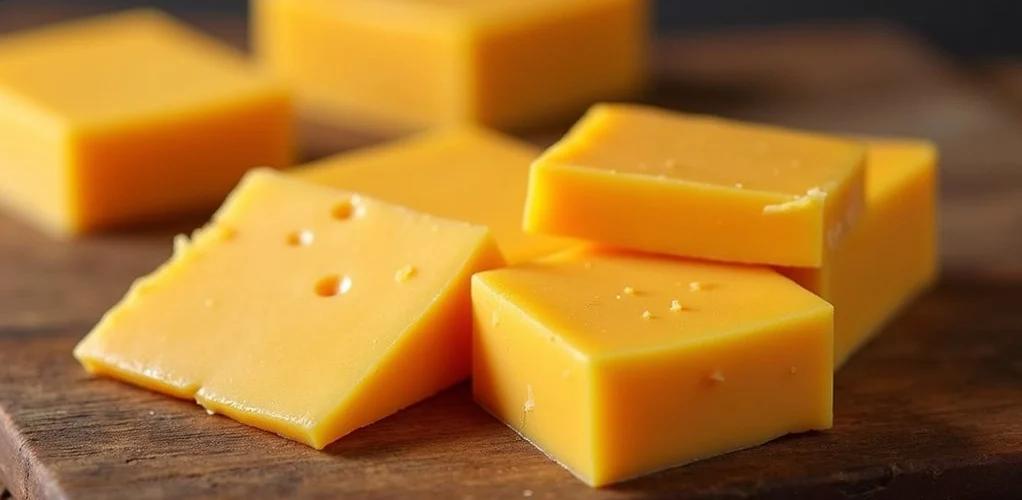
Cheddar cheese is indeed a low-carb option, containing only 3.37 grams of carbohydrates per 100 grams, or 0.59 grams per one-ounce serving. This makes it suitable for ketogenic and low-carb diets that typically restrict daily carb intake to 20-50 grams. The cheese provides significant nutritional benefits with 33.82 grams of fat and 26.9 grams of protein per 100 grams, while offering essential vitamins and minerals. Understanding cheddar's versatility opens up numerous culinary possibilities for health-conscious individuals.
Key Takeaways
- Cheddar cheese is considered low-carb with only 0.59 grams of carbohydrates per one-ounce serving.
- The carb content of 3.37 grams per 100 grams makes cheddar suitable for ketogenic diets limiting carbs to 20-50 grams daily.
- Compared to other cheeses, cheddar's carb content is similar to blue cheese and lower than parmesan or cottage cheese.
- Cheddar provides significant protein (26.9g) and fat (33.82g) per 100g, making it ideal for low-carb, high-fat diets.
- Cheddar cheese can be incorporated into low-carb meals through cheese crisps, sauces, or as toppings without significantly impacting carb intake.
The Carb Content of Cheddar Cheese Revealed
A detailed examination of cheddar cheese's nutritional profile reveals its remarkably low carbohydrate content, making it an excellent choice for those following ketogenic or low-carb diets. The nutrition facts show that cheddar cheese contains only 3.37 grams of carbohydrates per 100 grams, with a single ounce serving providing merely 0.59 grams of carbs. This minimal carb content, combined with its high fat content of 33.82 grams and substantial protein content of 26.9 grams per 100 grams, perfectly aligns with keto diet requirements. At 404 calories per 100 grams, cheddar cheese offers satisfying sustenance while staying well within the daily carbohydrate limit of 20-50 grams necessary for maintaining ketosis. Cheddar cheese, being low in carbs and rich in healthy fats, is a versatile ingredient that enhances meal flavors and promotes satiety, making it a staple in ketogenic meal plans.
Health Benefits Beyond the Carb Count
While cheddar cheese's low carbohydrate content makes it an attractive choice for dieters, its impressive array of nutrients delivers substantial health benefits beyond mere macronutrient ratios. Rich in calcium, cheddar supports bone health and helps prevent osteoporosis, while its protein content aids muscle maintenance and repair. The cheese's fat content contributes to satiety, potentially supporting weight management goals by promoting feelings of fullness. Essential micronutrients in cheddar provide additional advantages, with Vitamin A supporting eye health and Vitamin B12 maintaining proper nervous system function. The presence of minerals like phosphorus and zinc enhances immune function and energy production, making cheddar a nutrient-dense food choice that complements its low carbohydrate profile while offering thorough nutritional support. Additionally, cheddar is a source of conjugated linoleic acid, which may aid in fat loss, further enhancing its role in a balanced diet.
Comparing Cheddar to Other Low-Carb Cheeses
When comparing popular low-carb cheese options, cheddar's 0.59g of carbohydrates per ounce positions it favorably among alternatives like Swiss cheese at 0.4g and goat cheese at 0g per serving. While Parmesan offers slightly lower carbs at 0.9g per ounce and superior melting properties, cheddar maintains its status as a versatile option for both cooking and snacking in low-carb meal plans. The notable difference becomes apparent when considering cottage cheese, which contains 9.48g of carbs per cup, making cheddar a remarkably better choice for those following strict carbohydrate restrictions. It's important to prioritize high-quality fats, such as those found in cheese, to maintain heart health while adhering to a low-carb diet.
Nutritional Stats Side-by-Side
For cheese enthusiasts following a low-carb diet, understanding the carbohydrate content across different cheese varieties enables smarter dietary choices. A side-by-side comparison of nutritional stats reveals that cheddar cheese contains 0.59 grams of carbohydrates per 1-ounce serving, positioning it favorably among low-carb options rich in healthy fats.
- Goat cheese leads the pack with zero carbohydrates per serving, making it ideal for strict low-carb diets.
- Swiss cheese follows with 0.4 grams of carbohydrates, slightly lower than cheddar.
- Blue cheese contains 0.5 grams per slice, comparable to cheddar.
- Parmesan cheese ranks highest among these options at 0.9 grams per serving, though still maintaining low-carb status.
Best Melting Cheese Options
Although numerous low-carb cheeses exist, their melting properties can vary greatly, making some better suited for specific culinary applications than others.
When comparing the best melting cheese options, cheddar cheese stands out as an excellent low-carb option, with just 0.59 grams of carbs per serving and superior melting properties ideal for sauces and baked dishes.
Mozzarella offers similar versatility as a keto-friendly choice, containing 3.1 grams of carbs per 100 grams while delivering the perfect melt for pizzas and pasta dishes.
Gruyère emerges as another notable contender with merely 0.1 grams of carbs per serving, making it an excellent choice for cheesy dishes requiring smooth melting characteristics.
While parmesan contains only 0.9 grams of carbs per serving, it's better suited for grating or finishing dishes rather than melting applications.
Carb Content Breakdown
A thorough analysis of carbohydrate content reveals significant variations among popular cheese varieties, with cheddar cheese maintaining its position as a reliable low-carb option at 0.59 grams per ounce.
When examining cheese nutrition profiles for keto diet compatibility, several options emerge as excellent choices.
- Goat cheese leads the pack with zero carbohydrates per serving, making it ideal for strict low-carb diets.
- Swiss cheese contains 0.4 grams of carbs per ounce, offering slightly lower carbohydrate content than cheddar.
- Blue cheese provides 0.5 grams per slice, comparable to cheddar's carb content.
- Parmesan cheese contains 0.9 grams per ounce, still qualifying as a low-carb choice despite higher numbers.
Tips for Including Cheddar in Your Low-Carb Diet
When incorporating cheddar cheese into a low-carb diet, understanding effective strategies can maximize both enjoyment and nutritional benefits. High-quality, minimally processed cheddar cheese serves as a versatile ingredient in savory recipes while maintaining ketogenic diet requirements. Thoughtful meal planning allows for creative vegetable pairing and nutritious snack options. The ketogenic diet greatly reduces blood glucose levels and stabilizes HbA1c, preventing harmful blood sugar spikes.
| Usage | Carb Impact | Serving Suggestion |
|---|---|---|
| Topping | Minimal | Salads & Soups |
| Main Dish | Low | Stuffed Burgers |
| Snacking | Very Low | With Vegetables |
For best results, combine cheddar with low-carb vegetables like cucumbers or bell peppers, or incorporate it into ketogenic-friendly dishes such as cauliflower mac and cheese. This approach guarantees satisfying meals while maintaining strict carbohydrate limits, making cheddar an excellent choice for low-carb lifestyle adherence.
Best Ways to Store and Serve Low-Carb Cheddar
Proper storage and serving techniques greatly impact the quality and enjoyment of low-carb cheddar cheese in a ketogenic diet. For best quality, wrap cheddar in wax or parchment paper before placing it in a loose plastic bag or airtight container for refrigeration.
While unopened cheddar lasts up to six months refrigerated, opened portions should be consumed within three to four weeks.
To maintain ketosis effectively, it's important to recognize serving sizes and net carbohydrate content when incorporating cheddar cheese into your meals.
To maximize your low-carb cheddar experience:
- Allow cheese to reach room temperature for 30 minutes before serving to enhance flavor and texture
- Store properly wrapped cheese in the refrigerator to maintain freshness
- Consider freezing for up to six months when buying in bulk
- Pair with keto-friendly accompaniments like olives, nuts, or low-carb vegetables for satisfying snacks
Alternative Uses for Cheddar in Low-Carb Cooking
Low-carb cooking enthusiasts can transform cheddar cheese into versatile, crispy snacks by creating homemade cheese crisps through a simple baking process. Creative alternatives to traditional cheese sauce include melting cheddar with heavy cream and butter, offering a rich, carb-conscious option for various dishes. The classic cheese board receives a low-carb makeover when cheddar is paired with nuts, olives, and fresh vegetables, providing satisfying alternatives to crackers and bread. Keto bakers often use almond flour as a substitute for traditional flour, adding a nutty flavor and moisture to low-carb dishes.
Crunchy Cheddar Crisps Recipe
Many cheese enthusiasts have discovered that cheddar cheese can transform into delightfully crispy, low-carb snacks through a simple baking process.
These crunchy cheddar crisps contain minimal carbohydrates, with only 0.59 grams per ounce of cheese used, making them an excellent choice for low-carb diets and healthy snacks.
The recipe process is straightforward, yielding versatile results that can enhance various dishes while maintaining their nutritional benefits:
- Arrange shredded cheddar in small mounds on parchment paper
- Bake at 400°F for 5-7 minutes until golden
- Allow to cool completely for ideal texture
- Customize with seasonings like paprika or garlic powder
These crisps serve multiple purposes, from standalone snacks to crunchy toppings for salads and soups, offering a satisfying alternative to traditional high-carb crackers.
Melted Cheese Sauce Alternatives
Versatile melted cheddar cheese sauce offers numerous possibilities for enhancing low-carb dishes while maintaining minimal carbohydrate content. With only 0.59g of carbs per ounce, melted cheddar serves as an excellent low-carb alternative for traditional sauces and toppings.
Creating a rich cheese sauce becomes even more appealing when combined with heavy cream or cream cheese, maintaining a low carbohydrate count while delivering creamy satisfaction.
For enhanced texture and versatility, incorporating a low-carb thickener like xanthan gum allows the sauce to coat vegetables and proteins effectively. This adaptable sauce transforms comfort food favorites, particularly in cauliflower dishes and omelets, offering satisfying alternatives to high-carb meals.
Whether drizzled over roasted vegetables or folded into scrambled eggs, melted cheese provides both flavor and adherence to low-carb dietary requirements.
Creative Cheese Board Ideas
Creative cheese board assembly takes on new dimensions when crafting low-carb alternatives, with Cheddar cheese serving as the centerpiece for innovative presentations and pairings. For those following a low-carb diet, versatile options abound while maintaining strict carb limits.
Consider these smart combinations for your next savory platter:
- Pair aged Cheddar with cucumber rounds and mixed olives for minimal carbs.
- Combine cheese cubes with pepperoni and salami for protein-rich appetizers.
- Arrange low-carb options like nuts and seeds alongside traditional Cheddar.
- Include small portions of baked dishes, such as Cheddar-stuffed mini peppers.
These thoughtful pairings create an engaging cheese board experience while supporting low-carb meal goals, demonstrating Cheddar's adaptability in various dietary contexts.
Frequently Asked Questions
Is Cheddar Cheese Ok on a Low-Carb Diet?
Cheddar varieties are highly suitable for low-carb diets due to minimal carb content. Their health benefits include protein richness, making them excellent keto-friendly snacks when consumed with proper portion control.
Which Cheese Is Lowest in Carbohydrates?
Among popular cheese varieties, goat cheese contains zero carbohydrates per ounce serving, while other options like Swiss, blue, and cheddar contain between 0.4-0.9 grams of carbs per ounce.
Is Cheddar Cheese a Simple Carb?
Cheddar cheese is not a simple carbohydrate, featuring primarily proteins and fats. Its minimal carb content varies slightly among cheddar types, making it suitable for health-conscious cooking and low-carb meal pairings.
Can You Eat Too Much Cheese on a Low-Carb Diet?
Excessive cheese consumption on low-carb diets can undermine health benefits through excess calories and saturated fats. Proper portion control and nutritional balance with other foods maintain effective carb counting and dietary restrictions.
Conclusion
Cheddar cheese proves to be an excellent choice for low-carb dieters, containing virtually zero carbohydrates while offering substantial protein and healthy fats. Its versatility in cooking, long shelf life, and rich nutritional profile make it a valuable addition to any low-carb meal plan. Whether grated, melted, or cubed, cheddar can enhance dishes while keeping carb counts minimal, making it a reliable staple for those monitoring their carbohydrate intake.
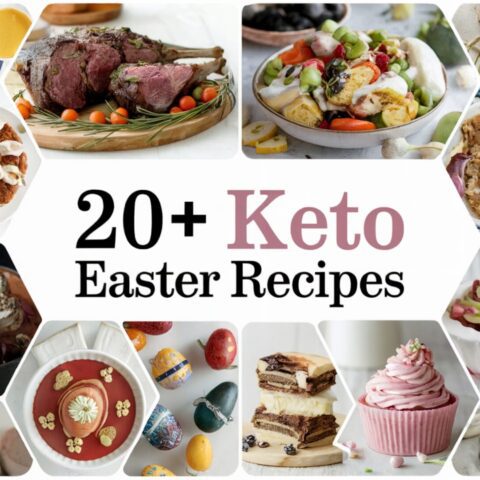

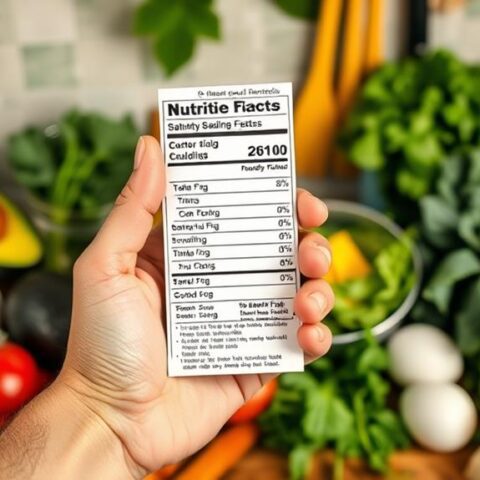
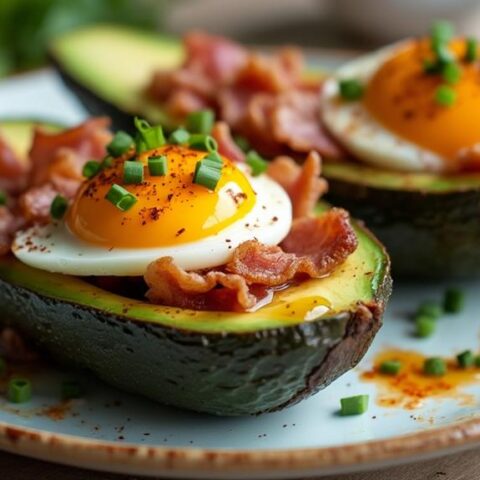
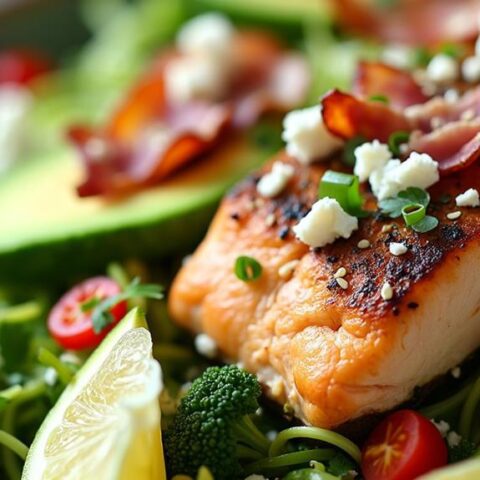





No Comments